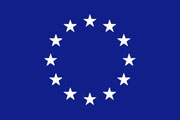Smart Grid: Rendement voor Iedereen
"Bottom-up approach beneficial for active engagement of end-users"
Project Summary
The Dutch project Smart Grid: Rendement voor Iedereen (English translation: ‘Benefits for All’) consists of two pilots of 100 households in two different Dutch cities, each with their own approach. In Utrecht the pilot takes a top-down approach and communication between participants and the management is bilateral. In the Amersfoort pilot, a bottom-up approach aims to establish a process of co-creation with a community of end-users. In Amersfoort, the participating households are empowered and activated so they will feel capable and willing to be part of the project. Therefore, the community based approach in the Amersfoort pilot is the key focus in this case study.
What sets this project apart from other Smart Grid projects?
The bottom-up approach in Amersfoort is rather unique in the world of smart
grids. A consultant specialized in community development was brought in to give shape and to support the
community of end-users. This community coach also functions as an intermediary
between the community and the project management.
The community coach applies a dedicated methodology, which does not follow a standardized roadmap but is tailored loosely to the project objectives and the target group. The community coach also participates as an end user in the project, which contributes to a shared feeling of ‘we’re in this together’.
After a successful recruitment, a contest was held among the 100 households that joined the pilot to choose a name for the community, resulting in the name ‘AmersVolt’. Next, a group of project ambassadors was formed, consisting of 12 participants to representing AmersVolt towards the project management. They offered their help voluntarily, because they are motivated to contribute to the design and implementation of the pilot project. Each ambassador brings in professional expertise and know-how from his or her job or education, reinforcing the project’s knowledge base.
What happened?
Further information / Contact
Contact S3C
Download Version (PDF, 460KB)
Download
Upcoming events
Supporters


